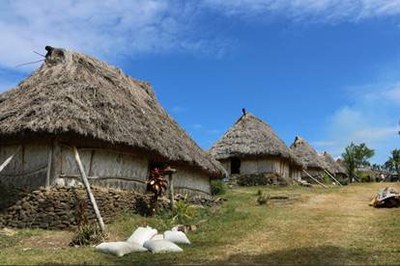
Reflecting on heritage and design projects undertaken in collaboration with Indigenous Australian communities and iTaukei Fijian villages, this presentation highlights the critical importance of understanding and respecting Indigenous protocols and ethics. In addition to presenting on culturally-appropriate design approaches and methods, this dialogue will discuss why place-making – whether in urban, regional or remote areas – will lead to more meaningful outcomes if designers commit to deep engagement and partnership with Indigenous land owners.
Scott Heyes, PhD, is a landscape architect, geographer and anthropologist with an interest in Indigenous knowledge systems and the built environment. He has undertaken extensive fieldwork with Indigenous communities in Arctic Canada, Australia, and the Pacific. He has written on place-making, Indigenous knowledge, Indigenous people and protected areas, natural history, participatory design, ethics, and cultural heritage. Scott is adjunct associate professor (research) at Monash University’s Indigenous Studies Centre and Research Associate at the Smithsonian Institution’s Anthropology Program. He is currently based at the University of Virginia’s School of Architecture as a Visiting Scholar. Scott was the recipient of a 2019 Endeavour Executive Leadership Award from the Australian Government, enabling him to undertake research on Indigenous cultural landscapes at the University of Virginia.